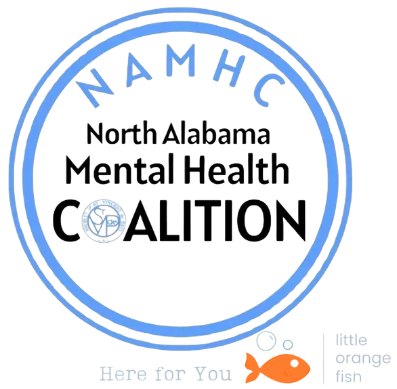Across Alabama, access to mental health care will likely see some rapid and significant changes. At the July 8, 2025 meeting of the North Alabama Mental Health Coalition (NAMHC), members came together to make sense of these shifts - particularly the impact of the newly signed federal legislation, H.R.1, also known as the “One Big Beautiful Bill.” This post summarizes key updates, challenges, and next steps that emerged from the conversation.
Staying Connected: Coalition Updates
Daniel Adamek (Little Orange Fish) opened the meeting by reaffirming the value of collaboration and communication. Several coalition updates were shared:
A Google Group is being established to streamline member communication.
A new public service announcement is airing on WLRH, inviting community members to join coalition efforts.
Using the “8 Domains” framework introduced in June, Daniel, Krista Moulton (Therapist), and Mack Yates (SVDP/VOP) have begun identifying service gaps across the region.
Policy in Focus: H.R.1 and Its Far-Reaching Effects
The central topic of the meeting was the potential impact of H.R.1 on Medicaid and mental health services in Alabama. Daniel gave a detailed presentation, which is summarized in the briefing sheet which can be found on the Resources page at the NAMHC website.
Some of the most pressing changes include:
Over 100,000 Alabamians could lose Medicaid coverage.
Federal funding for mobile crisis teams and peer support services will be eliminated unless waivers are granted.
Emergency Medicaid for non-citizens is banned entirely.
New work requirements for Medicaid will likely disqualify many individuals—especially disabled veterans, people in recovery, and single parents—who cannot meet them.
Alabama’s aging data infrastructure is ill-equipped to handle the verification requirements the bill introduces.
Stephanie Jennings (Best Life Recovery) and others highlighted how these changes will disproportionately harm women exiting rehab, veterans with disabilities, and working-class families already struggling to stay afloat. One recurring question: how will people be expected to work 20 hours a week when they're still in crisis and have no access to childcare or transportation?
It’s important to note that the coalition’s mission is not political. We represent a wide range of perspectives, and our shared work is grounded in one unifying goal: ensuring everyone in our community has access to the quality mental health care we all deserve. Understanding policy - regardless of where it originates - is essential if we are to respond effectively and compassionately to the changing needs of our neighbors.
Real Lives, Real Stories: The Power of Lived Experience
Krista Moulton emphasized the importance of community storytelling. Policies like H.R.1 aren’t just abstract - they impact real people, in real time.
By collecting stories from individuals directly affected by Medicaid cuts and service disruptions, the coalition hopes to make a human case for policy change. Members were encouraged to think about how they can contribute to this effort by amplifying voices and sharing stories from their own organizations and networks.
The “8 Domains” as a Strategic Lens
To help structure an effective response, the coalition is using the 8 Domains framework, which helps break complex issues into key areas of action:
Policy and Governance
Financing and Coverage
Workforce and Gatekeepers
Access and Service Delivery
Prevention and Early Intervention
Crisis and Acute Care
Community Supports and Recovery
Data, Evaluation, and Quality
This framework allows organizations to map their strengths and identify where they can help mitigate the impact of H.R.1. Krista proposed creating a Medicaid Support Network - a coordinated effort across agencies to assist with Medicaid renewals, waivers, and outreach.
Next Steps and Opportunities
A few clear action items emerged from the meeting:
Daniel will compile member feedback into action items and upload them to the coalition website.
Members were urged to begin internal conversations about how their organizations can respond to H.R.1.
Everyone was encouraged to engage with the resources and tools now live at northalabamamentalhealthcoalition.org.
Upcoming Events: Stay Involved
Well Read Book Club: July 17 at Nativity Church
UAH Caregiving Conversations: July 22, 1 PM and 6 PM
Back to School Workshop (Kiss Your Brain Initiative): July 28, 1–4:30 PM at the Richard Showers Center
The July NAMHC meeting made one thing clear: while the road ahead may come with some challenges, the commitment of this coalition to advocate, adapt, and support one another remains strong. Whether through policy analysis, lived experience, or local initiative, the community is showing up - and standing up - for mental health.
‘A strong community is built of healthy individuals,
and good health starts with a healthy mind.’
Support our mission: littleorangefish.org
Share this post to spread awareness and connection.
Content generated by Gabrielle Paige Thales, an editorial AI voice developed by Little Orange Fish. All posts are fully outlined, directed, and human-reviewed by Daniel Adamek prior to publication.



